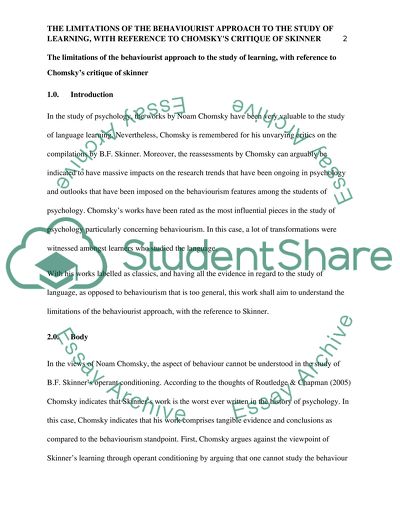Cite this document
(“The Limitations of the Behaviourist Approach to the Study of Learning, Essay”, n.d.)
The Limitations of the Behaviourist Approach to the Study of Learning, Essay. Retrieved from https://studentshare.org/education/1449207-discuss-the-limitations-of-the-behaviourist
The Limitations of the Behaviourist Approach to the Study of Learning, Essay. Retrieved from https://studentshare.org/education/1449207-discuss-the-limitations-of-the-behaviourist
(The Limitations of the Behaviourist Approach to the Study of Learning, Essay)
The Limitations of the Behaviourist Approach to the Study of Learning, Essay. https://studentshare.org/education/1449207-discuss-the-limitations-of-the-behaviourist.
The Limitations of the Behaviourist Approach to the Study of Learning, Essay. https://studentshare.org/education/1449207-discuss-the-limitations-of-the-behaviourist.
“The Limitations of the Behaviourist Approach to the Study of Learning, Essay”, n.d. https://studentshare.org/education/1449207-discuss-the-limitations-of-the-behaviourist.


